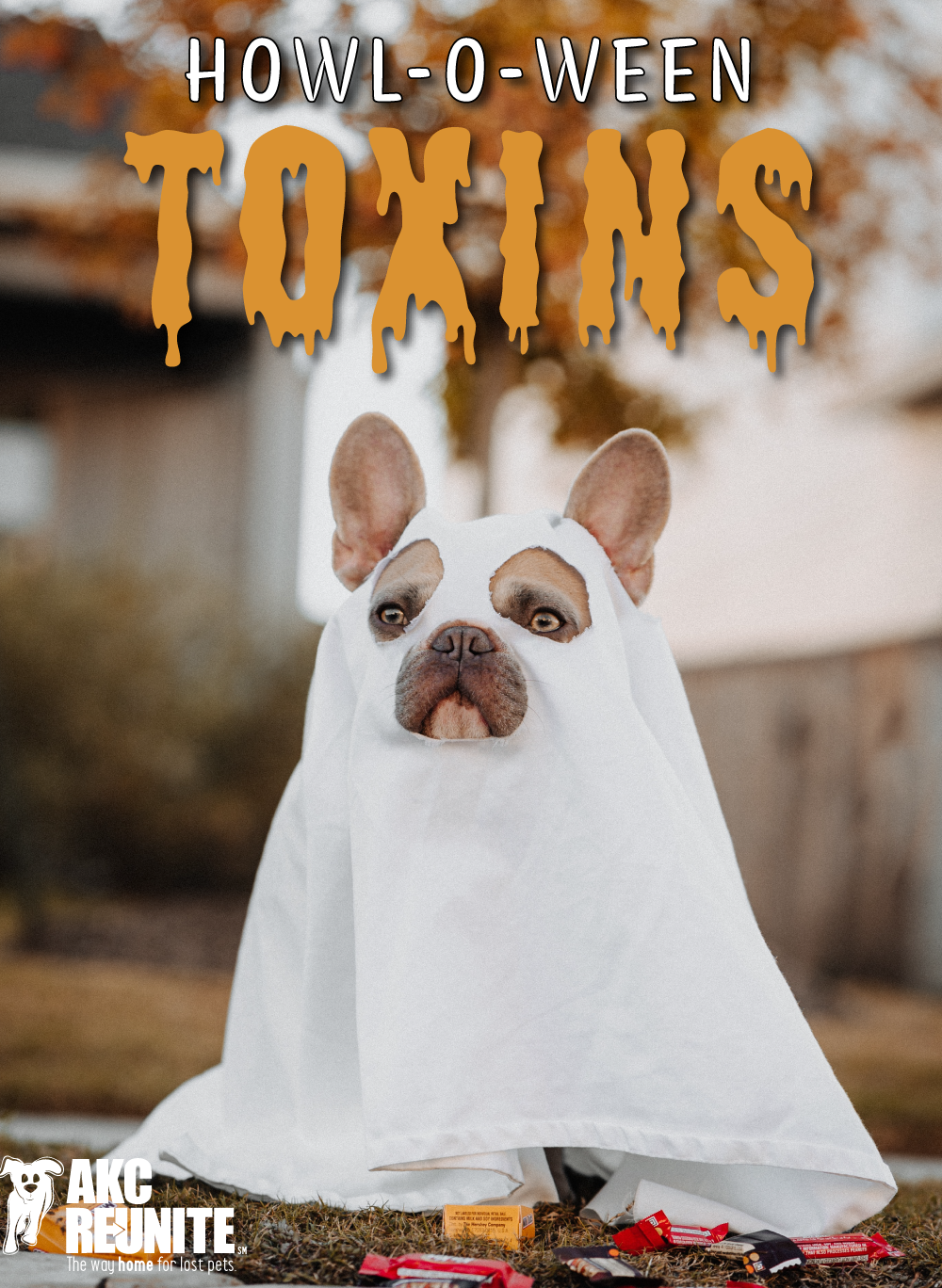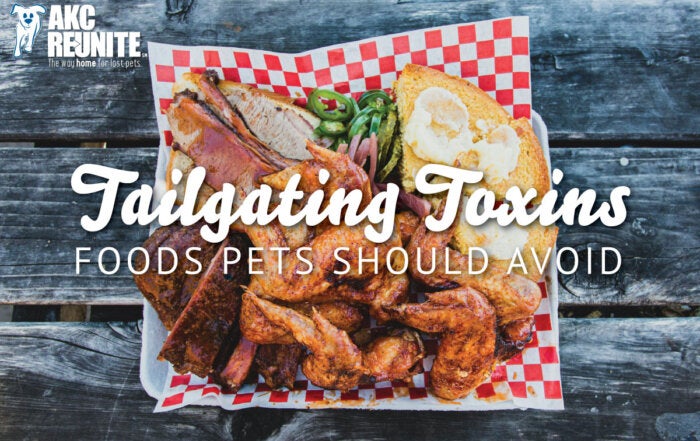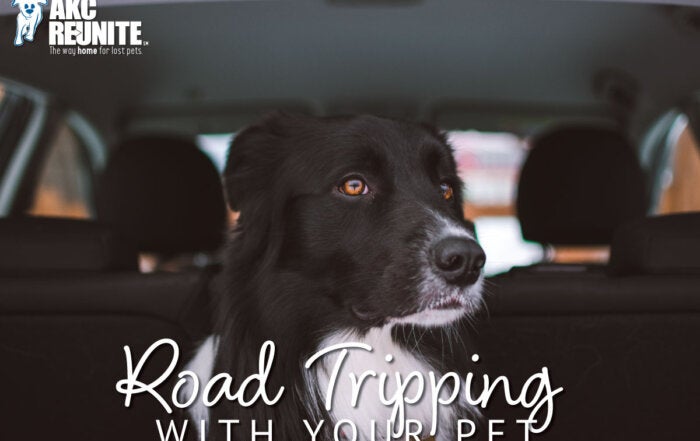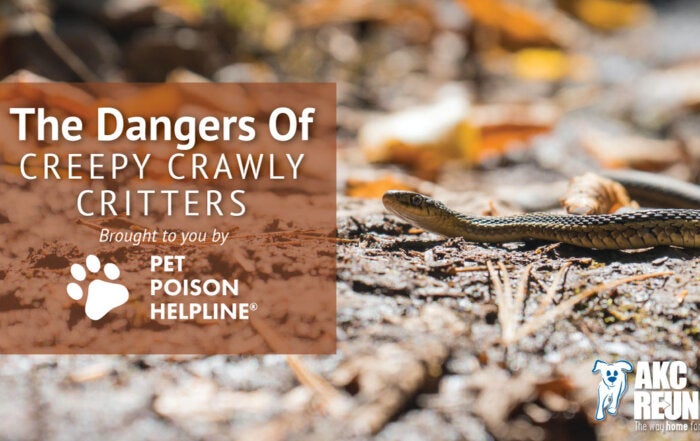Brought to you by Pet Poison Helpline & AKC Reunite
Trick or Treat! As you prepare your home for the holiday’s festivities, remember to keep in mind the dangers your pet could face — some may even surprise you! Avoid these common seasonal dangers so your pet can have a Happy HOWL-O-WEEN!
Candy & Chocolate
Of all candies, chocolate poses the biggest Halloween “threat” to dogs. Many dogs are attracted to the smell of chocolate, making it a significant threat for massive ingestion. The darker and more bitter the chocolate, the more poisonous it is. Milk chocolate and white chocolate are less dangerous, but should still be kept out of reach. If you think your dog may have ingested chocolate, signs to watch for include vomiting, diarrhea, lethargy, agitation, increased thirst, an elevated heart rate, and in severe cases, seizures.
Candy and other sweet foods – especially those containing poisonous xylitol (aka Birch Sugar) – can also be poisonous to pets. Large ingestions of sugary, high-fat candy and sweets can lead to pancreatitis in pets. Potentially fatal, pancreatitis is inflammation of the pancreas and very painful. Pet owners should be aware that clinical signs of pancreatitis may not present for several days after ingestion. Signs include a decreased appetite, vomiting, diarrhea, lethargy, abdominal pain, and potentially, kidney or organ damage.

Candy Wrappers
When pets get into candy, it is likely they will eat the wrappers too! Ingestion of foil and cellophane wrappers can sometimes cause a life-threatening bowel obstruction, which may require surgery to correct. Watch for vomiting, decreased appetite, not defecating, straining to defecate, or lethargy. X-rays or even ultrasound may be necessary to diagnose this problem.

Glow Sticks
Pets, especially cats, love to chew on these items. While not usually life-threatening, their contents can cause mouth pain and irritation, as well as profuse drooling and foaming at the mouth.
Costumes
Dressing your pet up for Halloween may be fun for you, but can be frustrating for your pet! If you dress your pet in a costume, be sure it doesn’t impair their vision, movement, or air intake. If the costume contains metallic beads, snaps or other small pieces, be aware that if ingested, some metals (especially zinc and lead) can result in serious poisoning. Also, don’t be tempted to dye or apply coloring to your pet’s fur. Even if the dye is labeled non-toxic to humans, it could still be harmful to pets.
As you plan your costume and home decorations, make sure loose items like rubber eyeballs, fake cobwebs, strung lights, and other plastic seasonal items are kept out of your pet’s reach!
Grapes & Raisins
Some people prefer to hand out healthy snacks instead of candy to trick-or-treaters on Halloween, such as mini-boxes of raisins. But these are extremely poisonous to dogs and very small amounts of raisins (and grapes) can cause kidney failure in dogs and it is also a potential in cats. When it comes to your pets, raisins and chocolate should be stored in secure containers out of their reach. If your pet ingests raisins or grapes your pet’s condition should be treated as a “poisoning” case. Symptoms include vomiting, nausea, decreased appetite, lethargy, abdominal pain, and severe kidney failure.
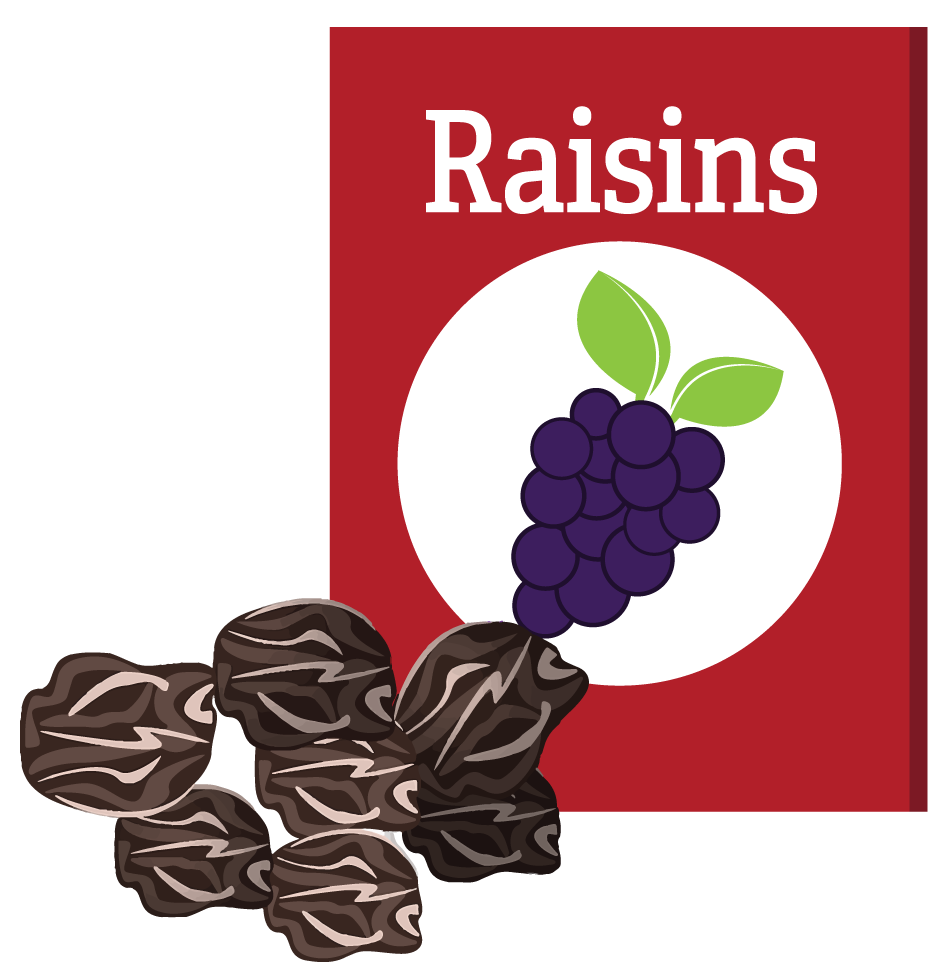
Pumpkin Spice
Pumpkin spice foods and drinks are a huge trend in the fall! These products are usually flavored with a mix of cinnamon, ginger, nutmeg, cloves, and allspice. While small amounts of these spices added to flavor foods usually will not be toxic to pets, ingesting large amounts of these fall spices, can cause serious illness.
Cinnamon can potentially cause vomiting, diarrhea, lowered blood sugar, irritation of the mouth and lungs, and possibly changes in heart rate and issues with the liver. Nutmeg contains a toxin called myristicin, and toxicity can cause symptoms including hallucinations, disorientation, increased heart rate, high blood pressure, dry mouth, abdominal pain, and possibly seizures. Ingestion of large amounts of ginger can cause stomach upset and lethargy. Cloves and allspice both contain a compound called eugenol, which can cause liver toxicity in cats.
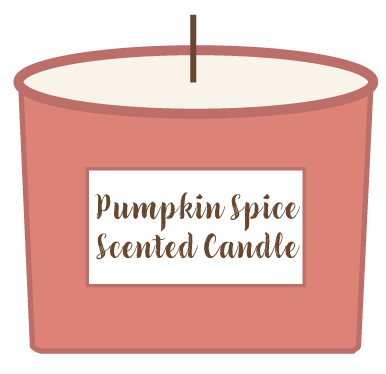
Candles
While unlit candles may not pose a threat, pets are notorious for starting fires when lit candles are accidentally knocked over — especially by cats! If you plan to carve pumpkins and make Jack-O-Lanterns, keep your curious pets away from anything with an open flame this Halloween season — or any time of year!
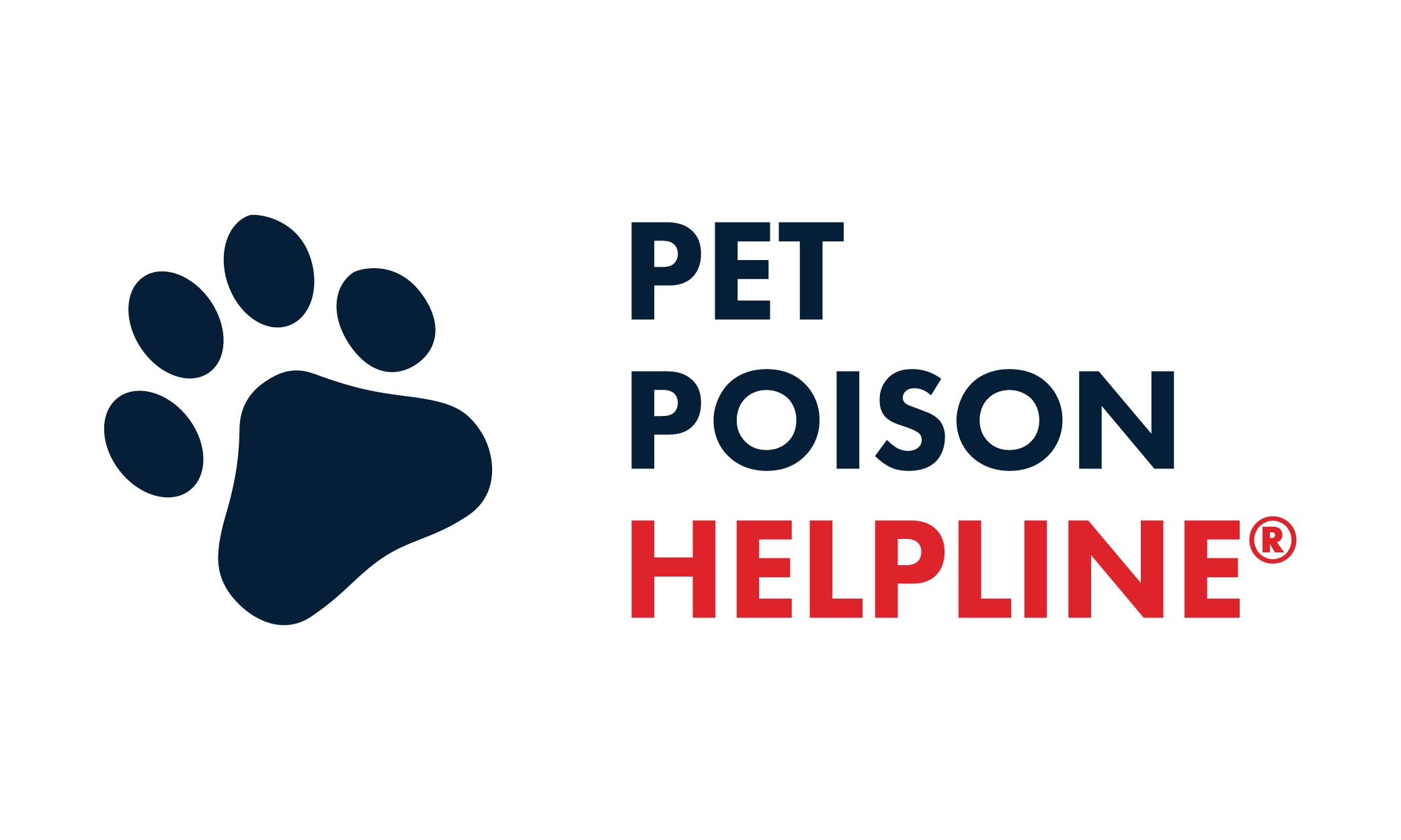
Pet Poison Helpline is a 24/7 animal poison control service available for pet owners and veterinary professionals who require assistance with treating a potentially poisoned pet. Pet Poison Helpline has the ability to help every poisoned pet, with all types of poisonings. Normally $85 per incident, with AKC Reunite you can plan ahead and subscribe your pet to this life-saving service for only $15 for the lifetime of your pet. Should your pet ingest something potentially poisonous, contact AKC Reunite at 800-252-7894 and we will verify your membership and connect you to a toxicology expert to help you and your pet FAST.

